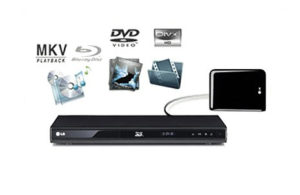Virtual cinema in a virtual world
Special: Virtual cinema in a virtual world
Nowadays the internet is ubiquitous, and everything related to entertainment, leisure or culture, can be accessed virtually, even by cell phone. All? In fact, this offer has several limitations, especially for something other than the commonplace.
 Two decades ago, in order to watch a movie, it was necessary to have a film, or a VHS tape and a videocassette, to photograph, a camera with diapositive or negative film, to read a book, the good old paper copy, and listen to the music, the dispute was still between the LP, the cassette tape and the newcome CD.
Two decades ago, in order to watch a movie, it was necessary to have a film, or a VHS tape and a videocassette, to photograph, a camera with diapositive or negative film, to read a book, the good old paper copy, and listen to the music, the dispute was still between the LP, the cassette tape and the newcome CD.
Technological evolution has transformed all this, as movies, photos, music and books have been converted into digital files.The memories expansion, the ever-increasing processing power, and the technological convergence have meant that today most media devices are multimedia.That is, it is possible to do all this in a computer, tablet, smartphone, television, BD or DVD-player, and, perhaps, in a microwave oven, a refrigerator, and other appliances, although it has not reached our Tupiniquim lands.
To gild all that, the internet is offered at ever-increasing speeds, which allows you to download – legal or otherwise – easily and quickly. A colleague on a mailing list goes further when he says that he does not keep anything downloaded. He watches and turn it off. If he ever wants to review it, he download it again.
While Apple solved the situation among its countless fans by limiting them to iTunes, in the non-Appleman world, there is still a sense of no-man’s land, though Netflix-like services are gaining more and more customers.
 The songs still circulate in mp3 and wma formats, the movies in avi and mkv, the photos in jpg, and the books in pdf, and other private formats. Many of these files are obtained from torrent sites, in system of direct exchanges between users or in usenet/newsgroups sites.
The songs still circulate in mp3 and wma formats, the movies in avi and mkv, the photos in jpg, and the books in pdf, and other private formats. Many of these files are obtained from torrent sites, in system of direct exchanges between users or in usenet/newsgroups sites.
The songs, as they are contained in smaller files, are more scattered and easier to find. Many artists still without evidence launch their products on the Internet, offering them to Internet users with the goal of becoming known.
The digital book market, led by Amazon with its Kindle, has not yet convinced traditional readers, even though it has advanced in many markets, including in Brazil, which has little consumption of physical books.The problem is that each company offers its electronic reader and its own digital format, not easily interchangeable. In addition, even products purchased legally are not guaranteed for the reader.
A famous case, that is still generatin prosecutions, is George Orwell’s “1984” book, sold to readers by Amazon, and later taken away from the Kindles without the owners’ permission when the seller discovered copyright issues.That is, the user had paid for the book, it was on his personal device, and it was hacked and deleted by the company.
The problem with the movies is more serious. The release of the DVD and later Blu-Ray left the collector enchanted by the possibility of having at his disposal forever his favorite movie with good sound and image quality.
I set aside a lot of VHS tapes, exposed to fungi and magnetised head, when the DVDs arrived, accumulating more than a thousand official discs. What left me with a grain of salt was discovering that DVDs also could “die” in case of oxidation of the thin film where the data is stored.With Blu-Ray I was more cautious, buying only the movies that I consider very important, even though I’ve got already more than four hundred discs in my collection.
 With the expansion of the internet, a lot of people regard it as their personal films and series storage, thinking that they will always find out whatever they want. In the case of popular American series or blockbusters movies, no problem, 20 years from now you will easily find versions of “Titanic” and “Avatar” to spend on your three-dimensional TVs with scent and temperature varying according to the scene.
With the expansion of the internet, a lot of people regard it as their personal films and series storage, thinking that they will always find out whatever they want. In the case of popular American series or blockbusters movies, no problem, 20 years from now you will easily find versions of “Titanic” and “Avatar” to spend on your three-dimensional TVs with scent and temperature varying according to the scene.
The problem will be with that obscure Brazilian or Czech movie from the 70’s that you would love to review.Even in the growing video-on-demand market, the big studios will not launch all of their catalog, but only the small part with guaranteed financial returns.
From one collector to another, I recommend that you do not give in to the temptation to make room for a rare and beloved movie. Keep your copies on DVD or Blu-Ray, and for those who have never been released in these formats, the best and cheapest solution is still the hard drive, internal or external, portable or not. Many of these simple digital archives will become rarities in a not too distant future, where the ephemeral and the interesting will be worth more than some precious version of an old film that only a lover of the Seventh Art knows how to recognize.






